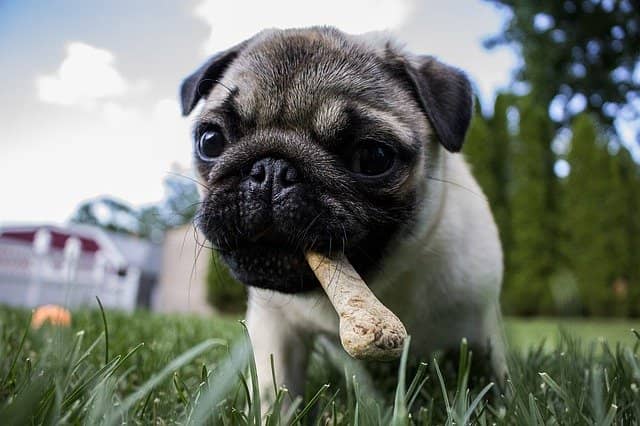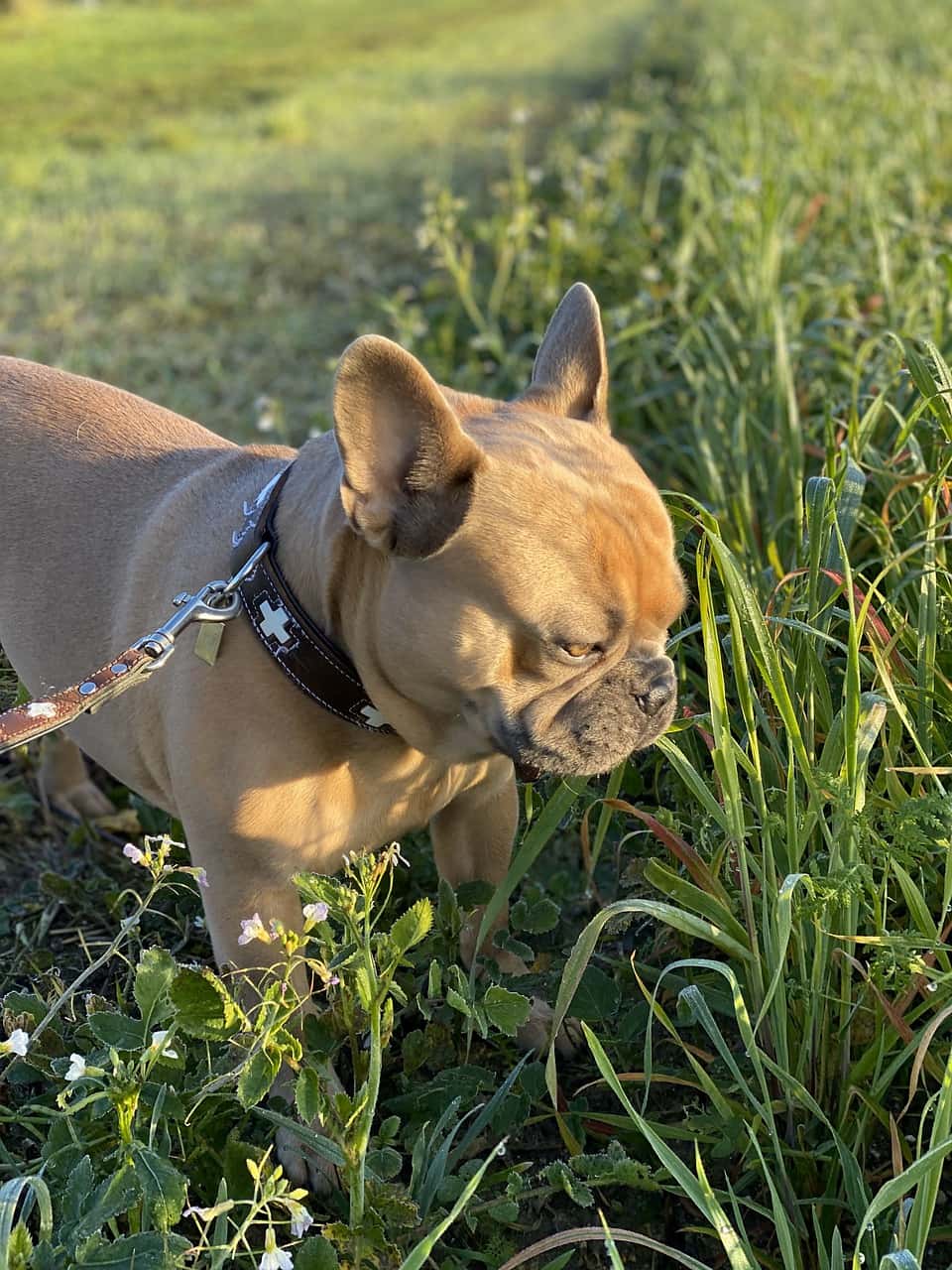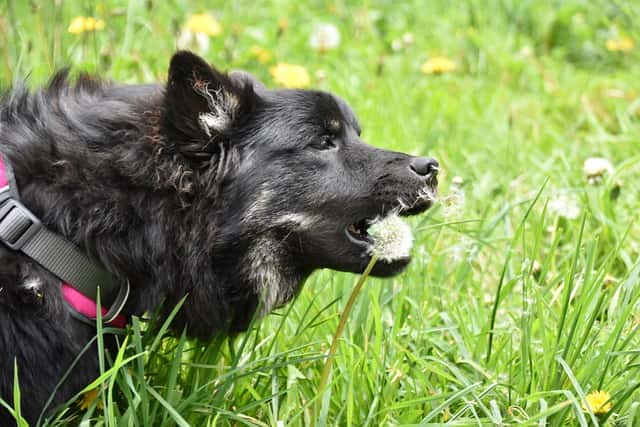Being a pet owner you must have observed your dog eating grass at times, which makes you worried? Is my dog hungry? Am I not feeding him properly? Is he not getting a nutritious diet? Is he bored? And you must have thought that eating grass will make him sick.
So here is the first good news, you aren’t alone in your concern, especially if your dog is eating grass and vomiting afterward.
Have you ever heard the word pica?
Pica is a technical term that describes the eating disorder of consuming things that aren’t food. There are a number of causes and reasons for dogs to exhibit such eating disorders. It can even be a sign of boredom in cubs, so you should take them out for a walk, or it can be indicative of nutritional deficiency in dogs.
Grass eating is typically harmless
Most of the animal experts emphasize that there is no danger in letting your dog eat grass. It can be a natural behavior inherited from their ancestors but it can make them more susceptible to intestinal parasites.
When to take things seriously and to visit a vet?
Keep an eye on the eating pattern of your dog and notice any unusual changes in their eating patterns. Watch out if there is a sudden increase in the grass-eating habit. It can be a sign of a more serious underlying illness that your dog is trying to self-treat and requires immediate veterinary assistance. You should also look for the following signs and symptoms in your dog
- Vomiting
- Diarrhea
- Sudden unexplained weight loss
- Lethargy
- Excessive drooling
- Lip licking
- Decreased appetite
- Changes to dog’s fur
Your dog may be suffering from some underlying gastrointestinal disease with no serious signs and symptoms. Most of the vets recommend an anti-nausea medication for dogs who ingest excessive grass.
Related Topic:
Why do dogs eat grass to throw up?
This is probably because your pet’s having an upset stomach and is instinctively trying to make them vomit and cure the condition. Long pieces of grass irritate the throat and stimulate vomiting. So if your dog is eating grass that is followed by vomiting afterward, you should take it seriously. It can be a sign of some underlying illness. So immediately visit a veterinary doctor for an accurate diagnosis.
So what makes dogs eat grass?
Whether your dog scarcely nibbles just a few blades or have a mouthful of dust, the answer to this question can simply be its taste! They just like the way it tastes.
Fact check
Dogs tend to enjoy things that disgust human palate, e.g., dirty socks, vegetable peels, trash cans, and others
Another explanation offered by Purdue University is that Undomesticated dogs are naturally omnivores (eat both plants and animal meat), hence they instinctively include plant material in their diet.
Dogs can be considered as opportunistic scavengers that can eat everything that satisfies their basic nutritional needs.
Is it a physical need for dogs?
It’s a common myth that dogs eat grass to relieve their upset stomach. Statistical data shows that only 25 % of dogs actually vomit after eating grass. So, it’s very unlikely that they consume grass as a form of self-medication. Another interesting fact is that only 10% of dogs show signs of illness prior to eating grass. In a nutshell, a major percentage of grass eating dogs aren’t sick beforehand and not always vomit afterward.
Do dogs try to fulfill their digestive needs by eating grass?
Since grass is a rich source of fiber and dogs like other organisms need fiber in their diet. Fiber deficiency can cause digestive problems like constipation and alters the normal body functioning. Fiver promotes digestion and its deficiency causes constipation (hard stools) in dogs.
Caution
If your dog is showing signs of stomach discomfort, he may be suffering from a medical illness such as gastric reflux, inflammatory bowel disease (IBS), etc. Visit a veterinarian doctor to find the hidden cause of such symptoms.
Is it a psychological need for dogs?
Dogs are attached to their owners and anxiously desire to spend quality time with them. Nibbling grass might be just a way to pass time for your dog while they wait for your attention. Dogs crave human attention and may try to attract them with such inappropriate actions, whenever they feel neglected. A dog care center can be a good option for such dogs.
Do dogs like its taste?
Despite the numerous explanations by many experts, we can’t deny one simple reason that dogs like to eat grass. They may simply enjoy the feeling of having grass in their mouths.
Do dogs eat grass out of boredom?
Another simple reason for eating grass can be boredom! Yes, dogs may eat grass to simply kill the boredom and to pass the time. They may even be seen chewing furniture, bedsheets, plastic toys, rugs, and other household items. Consider providing regular exercises and mental challenges to your dog.
You can consider providing a chew toy as an alternative for grass. Give some time and attention to your dogs and understand their needs.
How can I stop my dog from eating grass?
Despite all the scientific reasoning, we cannot deny the fact that grass isn’t the best snack for dogs. We cannot ignore the risk of herbicides and pesticides sprayed on grass that can be toxic for the dog. Another risk factor is the ingestion of intestinal parasites such as roundworms, from the ground. So how can we stop our dogs from grazing?
You can simply train your dog by using punishment and reward method. Try to train your dogs to stop eating grass in exchange for a better food option. Try to carry small treats along; when you take your dog out for a walk.
Concluding the above-mentioned facts, we can say that the dog may find it exciting to eat grass on the other side of the fence, but still shouldn’t eat it!
Image Credits
Featured Image (modified) #1: Pixabay
In-Post Image #2: Pixabay
In-Post Image #3: Pixabay
In-Post Image #4: Pixabay









